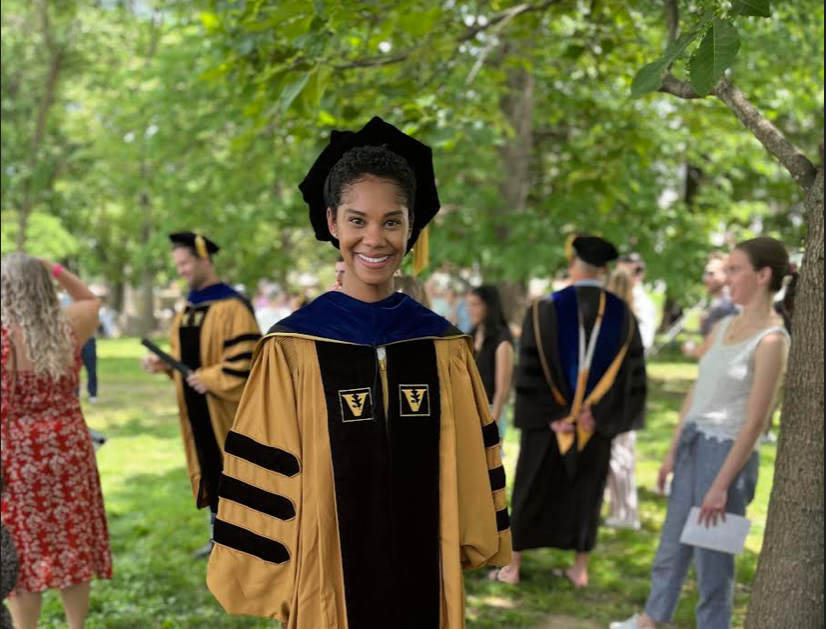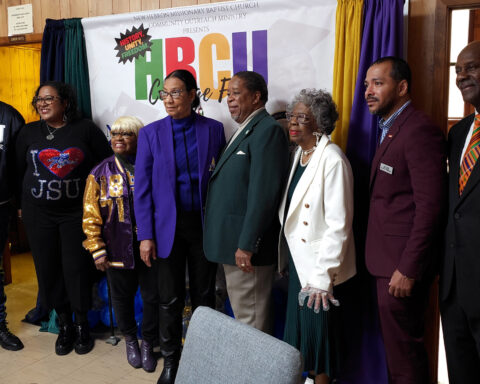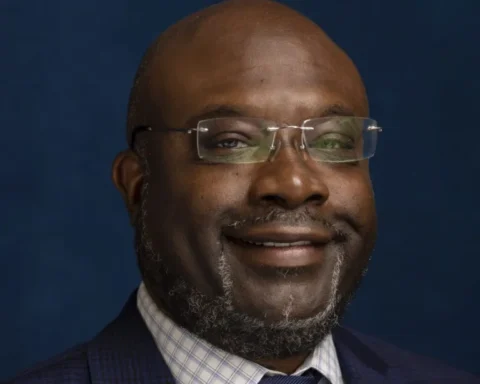Courtesy of Jackson State University
Jackson State University alumna Carcia Carson solidified herself in history by becoming the first Black woman to receive her Ph.D. in biomedical engineering from Vanderbilt University. With the completion of her advanced degree, Carson intends to devote her professional research to developing translational research in cancer vaccines and personalized immunotherapy.
“I am honored to become the first to accomplish this feat. I look forward to diversifying my industry and continuing the discussion of representation in high-level research environments,” she said.
A native of Terry, Carson obtained her B.S. in physics in 2014 from JSU. Shortly after, she transitioned to Fisk University to participate in their Fisk-Vanderbilt Master’s-to-PhD Bridge Program, where she also obtained her master’s degree in physics.
Carson shared that a large portion of her technical studies prepared her for more traditional teaching opportunities as a physicist. Eager to expand her professional scope, Carson credits her tenure at Fisk as the exposure needed to spark her connection to medical physics.
Carson said it was imperative that she commit her research towards the advancement of cancer research to aid in bridging the information gap for her family members and community. Her interest in translational research gained inspiration when her grandmother was diagnosed with cancer and selected to undergo an immunotherapy clinical trial, which was relatively new.
“Translational research is more likely to impact the treatment of cancer patients directly. That’s what I want to do. I want to have a direct hand in the treatment of cancer patients…I want to directly impact cancer patients with the hopes to improve the lives of people living with cancer,” she said.
Carson highlighted the importance of her resiliency throughout her academic journey, occasionally warding off the feeling of unworthiness plaguing her mind.
“I felt small, and imposter syndrome started getting bigger. I felt like I didn’t deserve to be here. Being the first African American female to get this Ph.D., I didn’t see anybody that looked like me,” said Carson. “So I started to find mentors in other departments that were Black women. I joined organizations that were for Black graduate students, and that truly helped me.”
Having secured national fellowships and published several academic publications while attending Fisk and Vanderbilt, Carson credits JSU for providing her with the ability to network effectively with key stakeholders in her field. More specifically, she extended deep gratitude toward former JSU faculty member Quentin Williams, Ph.D., for investing in her ability and training her work ethic, which further inspired her to pursue the Fisk-Vanderbilt program.
With many of her academic counterparts attending prestigious institutions outside of the HBCU spectrum, Carson recognized the likelihood that her fellow peers and professors would not view her as the ideal candidate. However, her quality of work and motivation behind her pursuits sustained her.
During her commencement ceremony, Carson honored the faculty at Vanderbilt that took a chance and allowed her to prove that greatness comes in many forms and from any environment.
“I was not the golden candidate that all faculty seek to advise, but the leader at Vanderbilt took a chance on me. Faculty needs to take a chance on all students,” said Carson. “Just because they didn’t come from a prestigious undergraduate institution or didn’t have high-level research doesn’t mean they aren’t capable of being successful in your lab or program.”
Reflecting on her academic career, Carson believes the most sound advice she’d impart to her younger self would be utilizing your resources, asking probing questions, and allowing your professional connections and insights to inform your pathway.
Carson said she looks forward to dedicating the next several years to advancing her medical research and obtaining her MBA degree with hopes of one day becoming a director of oncology.





